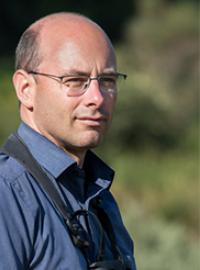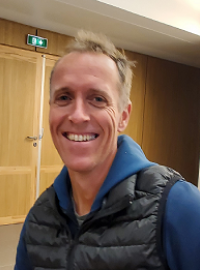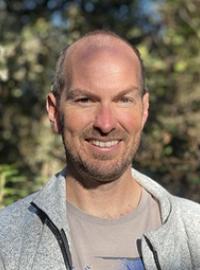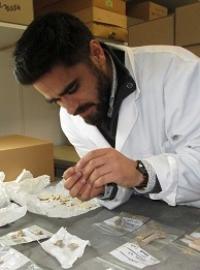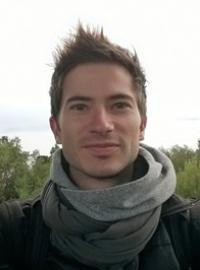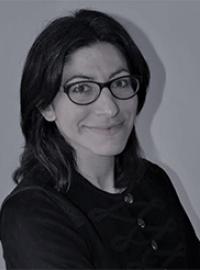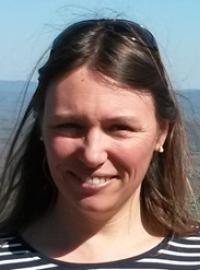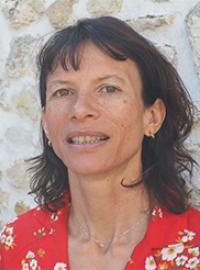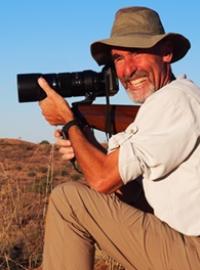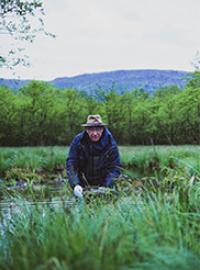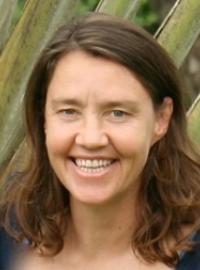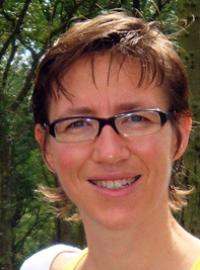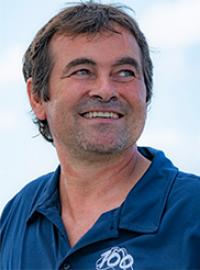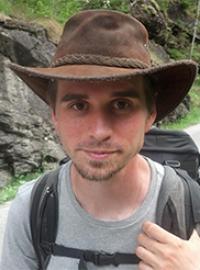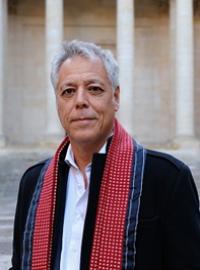
Master BE - Biodiversity - Environment
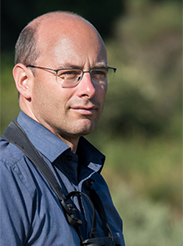
The EPHE-PSL Biodiversity - Environment Master's course trains you for careers in ecology and environment research, the science-society interface and the management of natural spaces.
Our strengths
- Concrete and practical training in the challenges of scientific ecology, at the interface between theoretical approaches, fieldwork, and societal issues
- A wide range of courses to personalize your training path
- Personalized support from an academic tutor throughout the program
- Small classes of 20 students in M1, 25 in M2
- Courses delivered as close as possible to research laboratories and areas of ecological importance
4 skill blocks
- 15 core curriculum course units (15 UEs)
- 19 UEs 19 elective course units (19 UEs)
- 6 optional complementary course units (6 UEs)
- 2 PSL Weeks (2 thematic PSL weeks)
7 teaching sites
- In mainland France and Moorea (French Polynesia)
- Closest to active research centers

The Biodiversity – Environment Master’s degree is part of the EPHE-ENS-PSL “Life Sciences” master’s program.
Explore the other academic tracks on the PSL website.
***
M1
We admit 20 students in the first year.
The usual recruitment channel for initial training is the Mon Master platform.
If you already hold a master's degree or a non-European diploma equivalent to a bachelor's degree, you must apply through the PSL-Talents application portal.
All eligible applications (complete applications) are reviewed by the training council. We do not conduct oral interviews.
Please note: if you do not hold a bachelor's degree issued by a French higher education institution, you must include a Validation of Acquired Skills (Validation des Acquis) file with your application.
M2
We admit up to 25 students in the second year.
If you have completed the master’s degree in Biodiversity and Environment at EPHE, you are automatically admitted to the master’s degree program, but you must complete your administrative and academic registration according to the provided schedule.
If you have completed another master’s degree program, you can apply through the PSL platform.
Registration Process
Once you have been notified of your admission to the master’s program, you must quickly complete your registration, which consists of two steps:
- administrative registration, including payment of tuition fees, which allows you to obtain your certificates of enrollment;
- academic registration, during which you choose your teaching units in consultation with your academic advisor.
Work-Study Programs and Professionalization Contracts
Are you a professional or would you like to complete your program through a work-study program or a professionalization contract? Contact the master’s program directors to discuss your individual situation.
Program Adjustments
Your master’s program may be adjusted for students in special circumstances (health or family reasons, high-level athlete, professional responsibility, or other situation). The Academic Council reviews requests on a case-by-case basis to offer you the most appropriate adjustments. Contact the master’s program directors.
For gap years, see the "Organization of Studies" tab.
Validation of Higher Education and Validation of Acquired Experience
Do you want to have all or part of your studies or professional experience recognized to obtain your master’s degree without having to return to school? You may be eligible for the Validation of Higher Education (VES) or Validation of Acquired Experience (VAE) programs. Contact us for more information.
***
Training Objectives
Starting in 2025, the Master's in Biodiversity and Environment program will be built on a skills-based approach based on four pillars:
- High-level thematic knowledge that will allow you to acquire a multidisciplinary and up-to-date understanding of scientific ecology, through a range of teaching units geared toward research practice;
- Enhanced training in the data cycle to provide you with all the skills necessary for data acquisition, management, analysis, and representation in accordance with the FAIR standard ;
- Preparation for your professional integration, whether in the context of ecological research or in professions related to expertise and management of natural areas, through a body of project-based teaching;
- Applications,from field immersion in the first week of the first year of the Master's program to internships in the first and second years.
The organization of semesters
Chaque semestre, vous vous immergez dans les quatre piliers avec une progression régulière en savoirs et compétences :
- Semester 1: Core curriculum units unite the class around a common body of knowledge and skills;
- Semester 2: You strengthen your training foundation while beginning to enrich it with teaching units of your choice, divided into the four skill pillars. You put your acquired knowledge into practice through a minimum 40-day internship, which marks your first immersion in a research laboratory or an expert or management organization;
- Semester 3: You mature your career plan during a semester dominated by teaching units of your choice, divided into the four skill pillars;
- Semestre 4: You conclude your training with a full-semester internship (minimum 100 days) that exposes you to the real-world challenges of a researcher or ecological expert leading an independent project.
Types of Course Units
- Core curriculum units, which form the foundational skill set of the Master's program
- Elective units in semesters 2 and 3, allowing you to specialize and prepare for your career path
- Optional complementary units, for further specialization or broadening your knowledge, which will appear on your Master's diploma supplement
- At least one PSL Week over the two years, to enrich your transdisciplinary culture
Teaching Unit Syllabus Catalog
Training Locations
The teaching units for the Master's in Biodiversity and Environment are spread across four main locations: Paris, Montpellier, Dinard, and Perpignan. A teaching unit dedicated to coral reefs is also offered to M2 students who wish to pursue an internship in Moorea (French Polynesia).
This traveling format, which brings you closer to research laboratories, allows you to benefit from the expertise of top specialists in each field during the teaching units and brings you closer to natural areas of significant ecological importance.
Please note: Travel and accommodation at teaching locations are not covered by the EPHE. Plan your budget and contact your next and previous year groups as soon as you are admitted, who will share their best tips with you.
Academic Tutoring
Each Master's student is individually supervised by an academic tutor assigned to them upon admission and who will support them throughout their studies. The tutor, a member of the Master's faculty, will assist you with your academic choices, internship searches, and post-Master's orientation.
Internships
The Master's in Biodiversity and Environment program includes two mandatory internships:
- one internship in semester 2 lasting a minimum of 40 working days;
- one internship in semester 4 lasting a minimum of 100 working days.
Download the internship guide for the Master's program in Biodiversity – Environment
Internships from previous cohorts
Gap Years
A semester or gap year is possible either before the first master’s degree or between the first and second years of the master’s degree program. As an integral part of your education, it allows you to refine your focus by gaining practical experience through internships in research laboratories or various professional organizations related to the master's themes. It's also an excellent opportunity to try an international internship. If you're interested in taking a gap year, contact the program directors and outline your plans.
***
Theses
Approximately 20% of master’s students choose to pursue a thesis. If research inspires you, discuss it with your academic advisor to choose the internships that will best prepare you for a doctorate.
Thesis formats, host structures, and post-thesis opportunities have diversified over the past 20 years: fundamental and applied laboratory research, research transfer and engineering positions in public or private organizations, scientific support for public policies, etc. By completing a thesis, you enter a rich professional ecosystem with numerous pathways and opportunities.
Careers in Ecological and Environmental Expertise
The rise of ecological issues is creating a dynamic job market that requires the knowledge and skills you will have acquired during the master’s program. If you are looking for concrete opportunities, close contact with the field, or commitment, you will find yourself in a vast and diverse pool of public and private jobs, requiring the interdisciplinary skills we prepare you for during the master’s program.
Careers in Science Outreach
Some of our students pursue careers at the interface between science and society after completing their master's degree: supporting environmental public policies, scientific journalism, and corporate project management. This field is booming and will offer you cross-disciplinary jobs closely aligned with environmental issues.
Further Studies
After completing your master’s degree, you can enroll in a specialized master’s program (one year of study after the master’s degree) or another master’s program to diversify or specialize before completing your thesis, or with a view to entering a professional career in a cross-disciplinary sector.
***
At the EPHE-PSL, the internationalization of our courses means that every student has the opportunity to undertake a study or internship mobility program.
The International Relations Department assists students in defining and implementing their projects, identifying the most appropriate financial instruments and schemes.
Holder of the “Welcome to France” label and the Erasmus+ 2021-2027 charter, the EPHE-PSL has also been welcoming a large and growing number of international students for many years.
Go to International relations
Download: Directory of financial mechanisms and instruments for international projects
Who should you contact? International Relations Department
